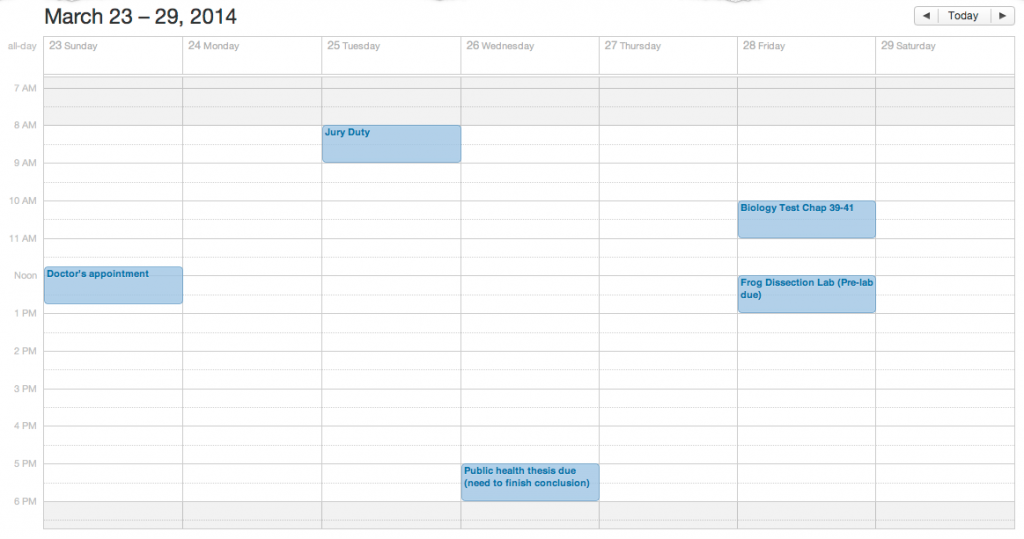Mastering Time Management: Three Levels of Organization

Photo Credit: Sebastien Wiertz
Life in the 21st century is chock full of complexities stemming from the increased number of stimuli we’re exposed to on a regular basis. It’s easy to get overwhelmed by your responsibilities if they’re tackled in an arbitrary, disorganized manner. In this article I present my personal method of time management that I teach to my students, so that they have an explicit path to achieving their goals. These organizational principles apply to adults and kids alike and I encourage anyone who has trouble accomplishing tasks to take something out of this post.
Effective time management boils down to three central time spans: long term, weekly, and daily. If you can keep your eye on all three, you will be more focused on what you should be doing and less on what you shouldn’t.
Long Term Goals
Your goals are the driving force behind the other two sublevels of organization. The are the achievements you put all your resources and planning to reach one day. Without a clear end in sight, you could be walking around in circles wasting time, energy, and limited motivation.
Contrary to popular belief, there are such things as good goals and bad goals. Before you go about achieving your dreams, you have to make sure they are both specific and attainable. Having vague goals only blurs your path to success.
General, Ambiguous Goal: “I will be an excellent high school student and college shoo-in by getting good grades and engaging in extracurricular activities.”
Specific, Attainable Goal: “I will get my GPA above 92 and rise to a leadership position on the debate team by junior year.”
Being proactive in listing your goals for the coming months and year will give you a finish line to look toward when you’re having a tough night. Post these up somewhere where you will see them at least once a day. It could be on the first page of your planner, your desktop background, or on a paper tacked to your wall: any location that your eyes frequent daily will work.
Weekly Calendar
Once your motivational track is set, it’s time to navigate the course. Using your specific goals as guidelines, a calendar is a crucial weapon in tackling your time management. Constantly plan and peer at your week ahead to give yourself a strategy to organize your daily tasks. Prioritizing, as we’ll see in the next section, relies heavily on the difficulty of the task as well as its urgency.
How can you determine urgency by if you don’t break down your days into hourly divisions? This gets us into what it means to have a good calendar: that which has a weekly feature where you can see what time of day the task/event/meeting occurs. When you’re tight on time and setting your daily checklist, you can prioritize the earlier task rather than the later that could be done the day of.
Bad Calendar: Vague titles and no hourly breakdown.
Good Calendar: See your events by the hour and get a more detailed description of the task.
Daily Checklist
Ah, the daily checklist: the crux of your whole organizational trifecta. It’s the workhorse of time management and it dictates what needs to be done today to steadily work towards your goals. The look of an effective checklist varies based on situation and individual, but I will give my top three tips that will apply for most of my readers. This is where you really want to pay attention folks.
General Daily Checklist Tips
1. Do not overwhelm yourself. You know your limits better than anyone. Make sure your list is attainable based on your schedule and resist the urge to put too much on your plate.
2. Prioritize. If you’re strapped for time, choose to do the tasks that are the most pressing. Events and exams that have a concrete due date are the most urgent and should have a high priority.
3. Start with the easiest task first. Momentum is huge for productivity. By starting with the simplest assignment you have for the day, you give your brain a boost of “I can do it!” that will propel you to finish the rest of your work.







No comments